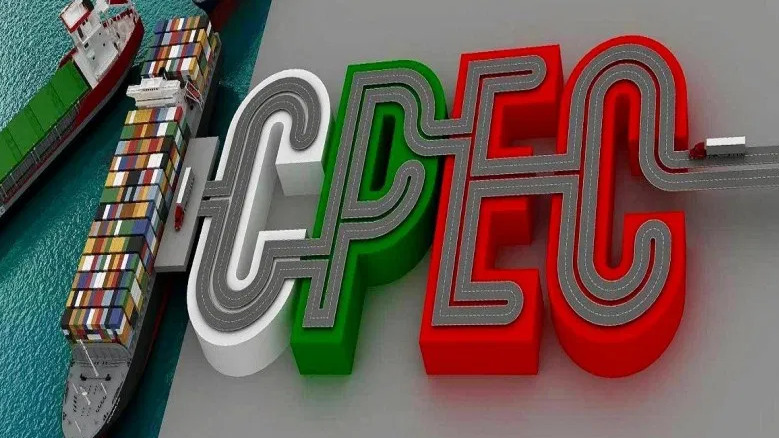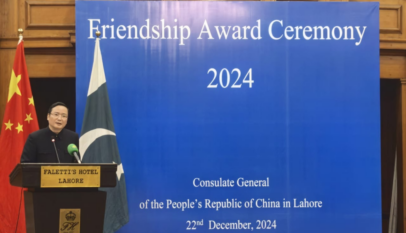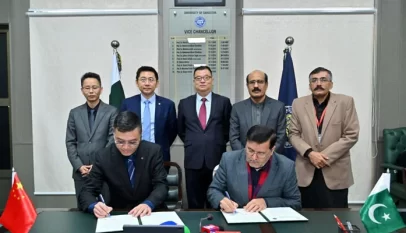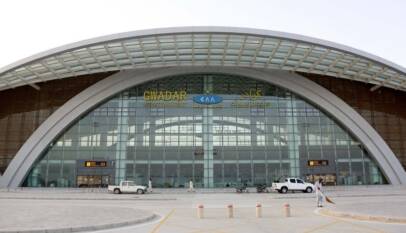CPEC to facilitate Pakistan’s economic growth
The CPEC projects can help achieve the incumbent government a GDP growth of around five percent in the next fiscal year and ensure that development targets are met. As the CPEC Authority Bill has been passed in the Senate, the incumbent government now has to ensure that CPEC Phase-II is a success. The incumbent government is also now working to remove all procedural bottlenecks and approaching Chinese investors. Now, the government has to sort out and plan its deadlines to avoid any delays.
While the government is planning to spur GDP growth of around 5 percent in the next fiscal through increased public spending and promoting private investment, recent developments indicate that the renewed focus on the China-Pakistan Economic Corridor (CPEC) of late can play a role in ensuring that growth targets are met. While the sweet rhetoric of old CPEC days has been missing under current administration, it appears there is a realization to finally get things moving on the ground again.
With the approval of the CPEC Authority Bill in the Senate last month, now comes the hard part where expectations have to be met that mega projects (in the fields of transportation, power, port development, etc.) will be expedited to the satisfaction of relevant Chinese authorities. Time will tell, but it becomes crucial for this government to make CPEC phase-2 a success, and a key ingredient of success in this case is to ensure that wheels of the bureaucracy find ways to collaborate with the new arrangement.
For his part, the PM has himself declared CPEC completion a “top priority”. The government is gradually working to remove procedural bottlenecks and financial constraints in the way of operationalizing Special Economic Zones. Investors in China are being approached in a targeted manner to market the opportunities and incentives offered under CPEC SEZs. Similarly, visa issues being faced by the Chinese are also being sorted out. The new finance minister has also expressed the need to expedite CPEC projects, especially in transportation-related and SEZ projects.
But all eyes are on the fate of multi-billion-dollar ML-1 project (official title: “Rehabilitation & Up-gradation of Karachi-Lahore Peshawar (ML-1) Railway Track”). The ~1,800km long project had been approved by the ECNEC last year in August, and the government has allocated Rs9 billion in the next budget. The project seems to enjoy broad political support as well. Recall that when the deadly train accident took place earlier this month, the government argued that ML-1 would resolve the “track” issues, whereas the opposition slammed the government for not starting the project.
If ML-1 is indeed the only solution that everyone seems to be resigned to, then this project better commence soon. However, this project of significance, which has been for years under bilateral discussions, has hit funding snags. The project cost – final figure is unclear at the moment with estimates varying from $6.8 billion (official CPEC website) to $9.3 billion (as stated by the new finance minister in his post-budget press conference) – needs to be financed mostly by a loan from China.
However, the two countries need to come to an agreement over the financing terms and conditions. How long it will take seems uncertain. Both sides have reaffirmed in their public statements that ML-1 would be launched soon. The Chinese ambassador, who has recently conveyed China’s desire to work with all political parties on CPEC, has been optimistic about bilateral economic cooperation. This year marked the 70th anniversary of China-Pakistan bilateral relations. So, a breakthrough is possible. President Xi couldn’t visit last year. Maybe the environment will be more conducive later this year.
Given the shifting geopolitical sands, Pakistan needs to be careful in preserving its economic promise. The country must protect its territory from violence that can potentially spill over here after a post-NATO troop withdrawal from Afghanistan. While improving US-Pak relations are a good omen, it remains to be seen if there will be an American security footprint here and how China will react to it. Winds of change are blowing in the region, but there is a need to put the economy first this time around.
Mohsin Naqvi conferred China Consulate General Friendship Award
Chinese Consul General in Lahore, Zhao Shiren, presented the “China Consulate General Frie…











